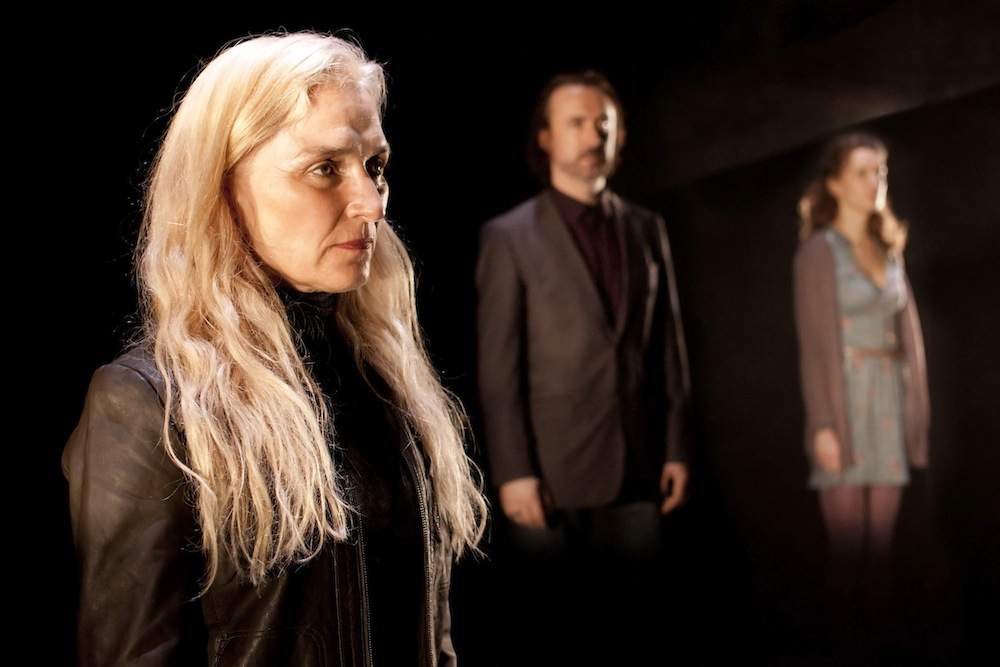Terminus
Three isolated characters kill, die, brawl, save lives, steal a truck and soar through the air in the arms of a demon composed of worms.
Overview
Last year, the Sydney Theatre Company sketched a new tradition when it programmed the hugely acclaimed August: Osage Country from Chicago's Steppenwolf Theatre Company as part of its otherwise locally produced Main Stage season. It's a carefully allocated slot that goes not just to an exemplary piece of theatre but a definitive telling that would lose some of its particular magic if packaged in any other way. This year the equivalent play is Terminus, courtesy of the company that first put it on, Ireland's Abbey Theatre, and directed by its writer, Mark O'Rowe.
That's where the equivalence ends; Terminus is the near opposite of August: Osage County's three-storeyed, talky family soap opera, magnificent as it was. There is no set, and although the narrative is ultimately interwoven, the action is all carried in monologic verse by three actors alternately caught in a precise beam of light on an ink-black stage. There's one bit of pageantry, bracing and effective, just after the house lights go down, but otherwise you're on your own with these three isolated busts, this one void room.
A (Olwen Fouere) is a briny, middle-aged schoolteacher, vying to save her troubled students and quell the bubbling guilt of her own bad motherhood; B (Catherine Walker) is a young woman driven to solitude by life's betrayals, who falls from the top of a crane when it deals her another; and C (Declan Conlon), well, C made a pact with the devil in exchange for an exalted singing voice but, too socially phobic to use it, has become a merciless serial killer instead. On one fateful night, they kill, die, brawl, save lives, steal a truck and soar through the air in the arms of a demon composed of worms but shot through with human desires.
The question you may be asking at this point is, why would you go to see three people doing what basically amounts to spoken word poetry when you could go to see a play, you know the thing, with maximalist production, a set dressed in literal and symbolic value and characters who talk to each other. The answer is all that's left the writing and its delivery which in Terminus are dizzyingly, unforgettably good.
O'Rowe weaves together fantasy and reality, high culture and low in blindsiding ways, so fantastical, religious, near-redemptive imagery mixes with eye gouging and the ritual of watching Beaches. When you're entranced by the steady yet surprisingly unrestricted metre, charmed by rhymes that toy with your expectations and deprived of your visual sense, the words alone become visceral and moving. At one high point, B's breathless recount of the memories that flash before her eyes at her death rewires your understanding of this familiar trope. It's otherworldly and shaking and reaches through the dark to make a human connection.





